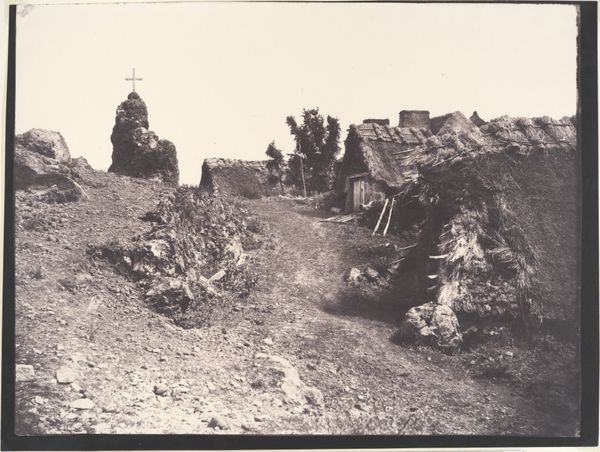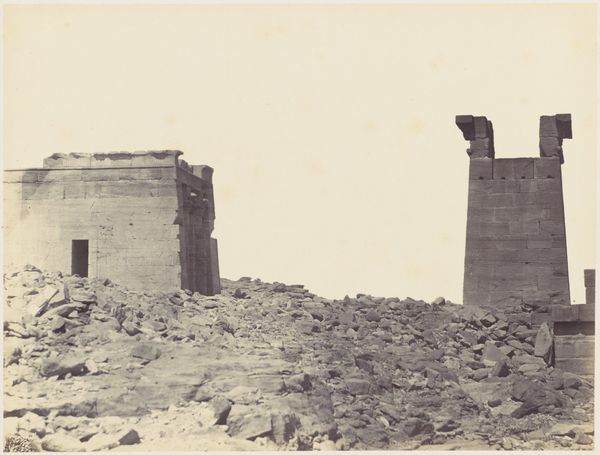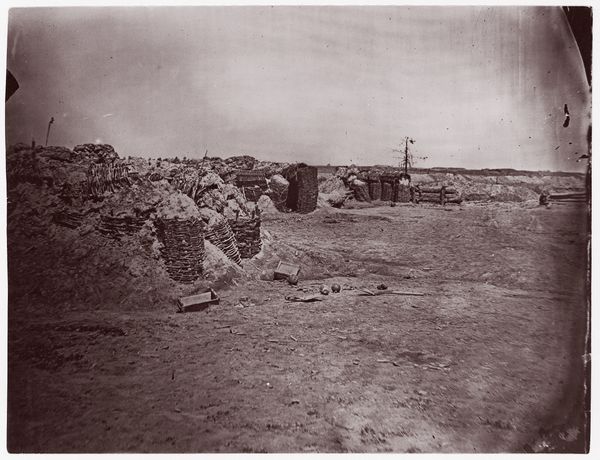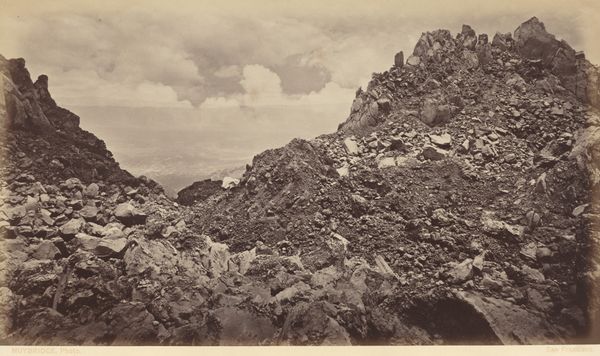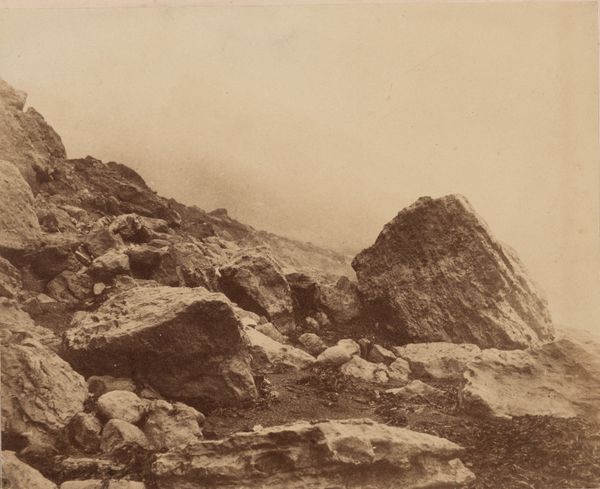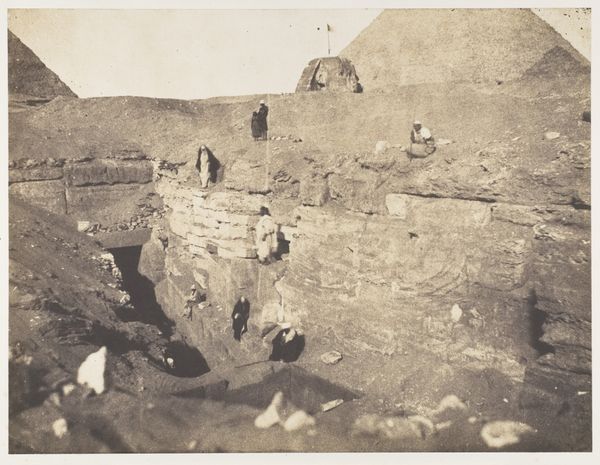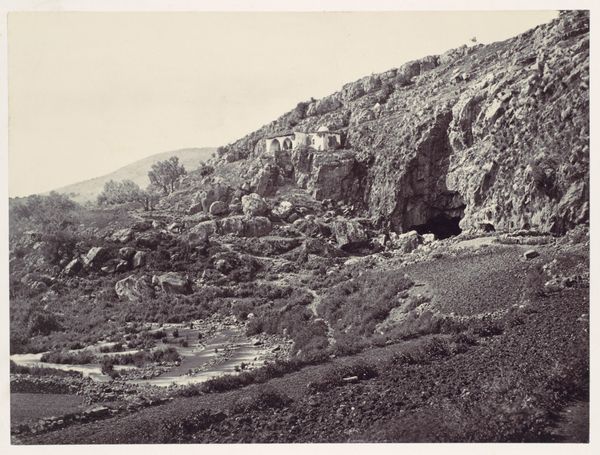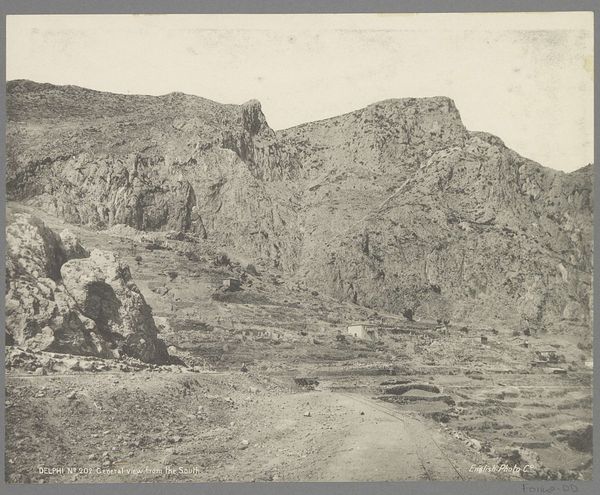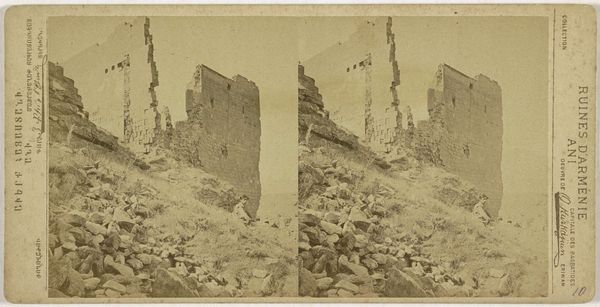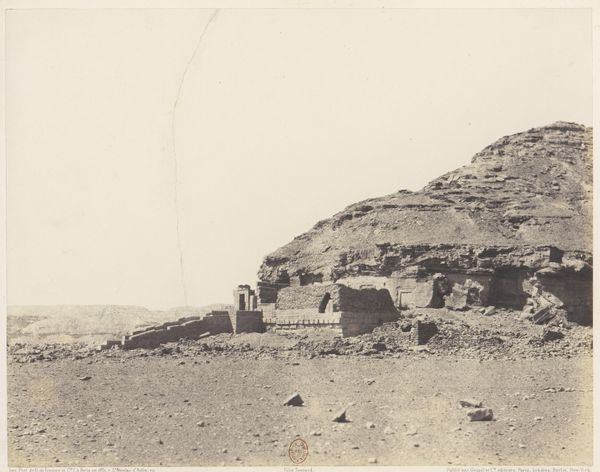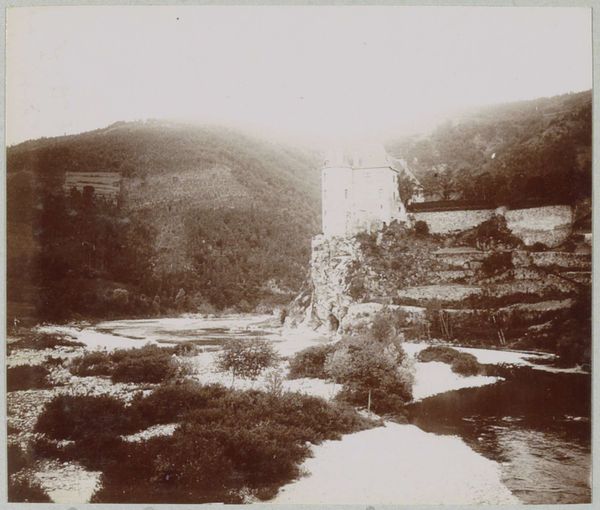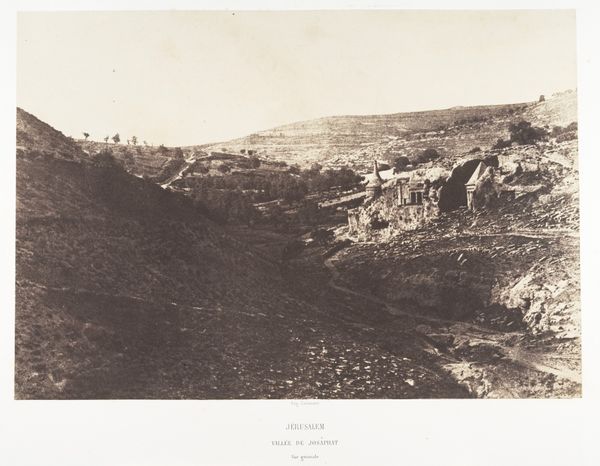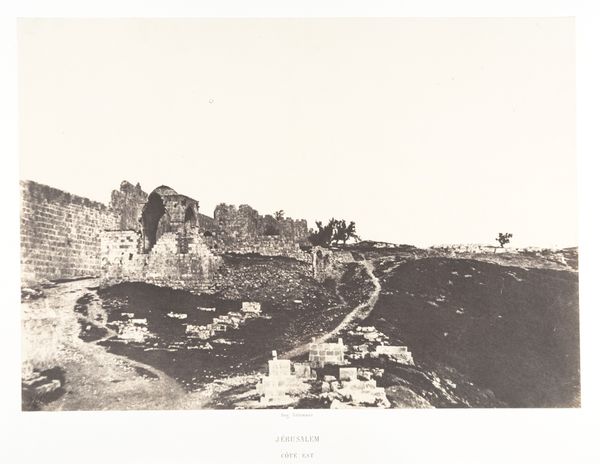
photography, collotype
#
excavation photography
#
natural shape and form
#
natural formation
#
countryside
#
organic shape
#
landscape
#
nature
#
photography
#
collotype
#
outdoor scenery
#
nature heavy
#
outdoor activity
#
naturalism
#
realism
#
shadow overcast
Dimensions: 19.8 x 25.9 cm (7 13/16 x 10 3/16 in. )
Copyright: Public Domain
Editor: This is Eugène Cuvelier's "Carrière aux Sables de Macherin," created in 1863. It's a collotype photograph capturing a sand quarry. The scene feels quite monumental, almost like a forgotten city in ruins. What do you see in this piece, from an iconographic perspective? Curator: It evokes layers of cultural memory, doesn't it? Notice how the human intervention—the quarry itself—becomes indistinguishable from a natural formation over time. This speaks to a larger narrative. The shapes, seemingly random, echo images of ancient ziggurats, temples left to decay. Do you see that faint suggestion of a doorway carved within? Editor: I do see it now. So, you're suggesting the photograph transcends mere documentation? Curator: Precisely! The quarry isn't just a site of industry. It becomes a powerful symbol for time's passage, the erosion of civilizations, and the constant dialogue between humanity and nature. The lack of human figures heightens this feeling of desolation, creating a stage set for the remnants of an unremembered play. The neutral tonality and diffused light further emphasizes timelessness. Editor: It's almost unsettling to consider the human labor now invisible, swallowed by the image of the quarry as a ruin. Curator: The photograph serves as a visual palimpsest, erasing one narrative and layering on another. We’re left contemplating the cyclical nature of creation and destruction. Editor: I'll never look at a photograph of a landscape the same way. The layers of history you’ve revealed are quite amazing. Curator: And I now look more closely at its visual presentation! Thank you.
Comments
No comments
Be the first to comment and join the conversation on the ultimate creative platform.
